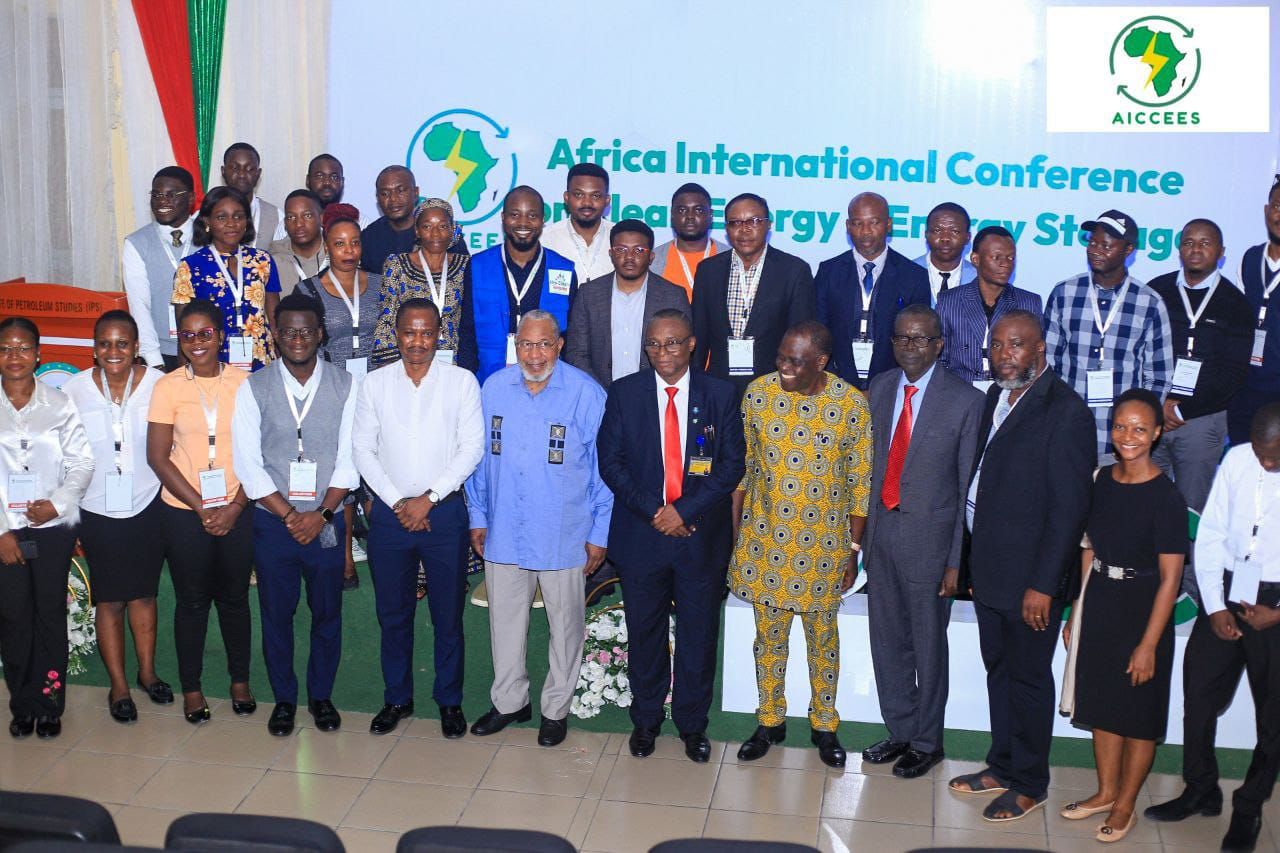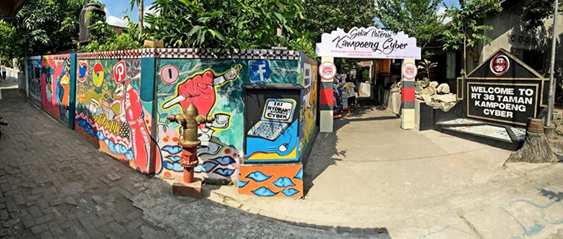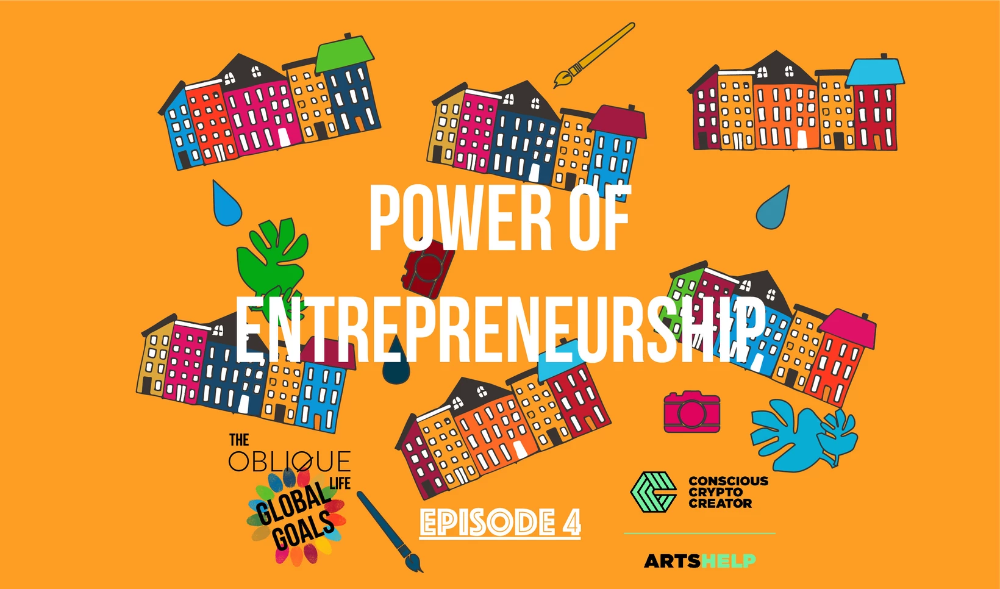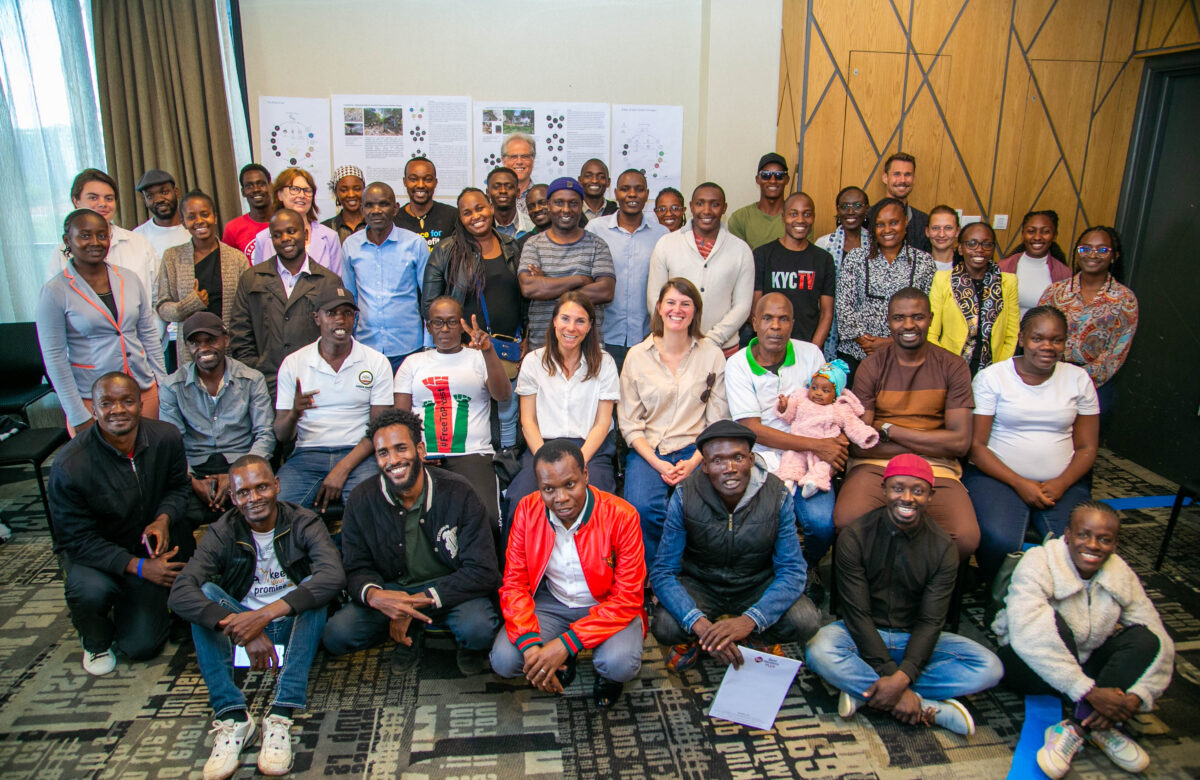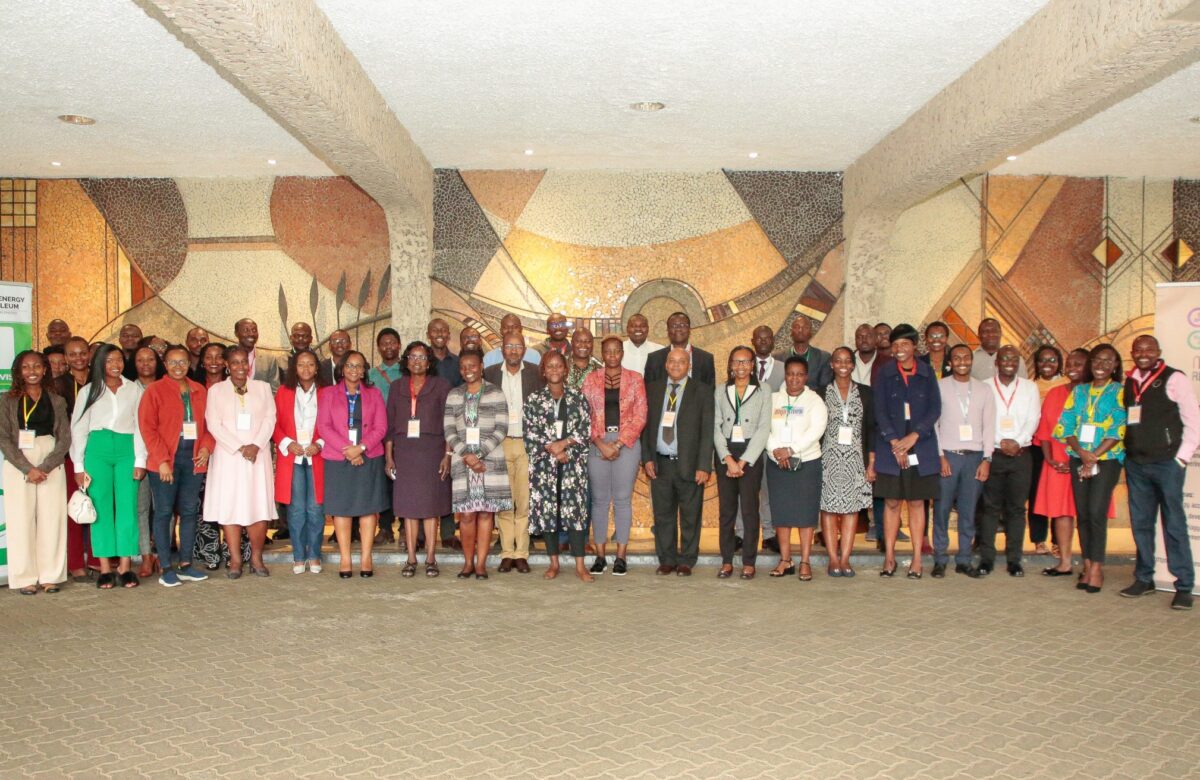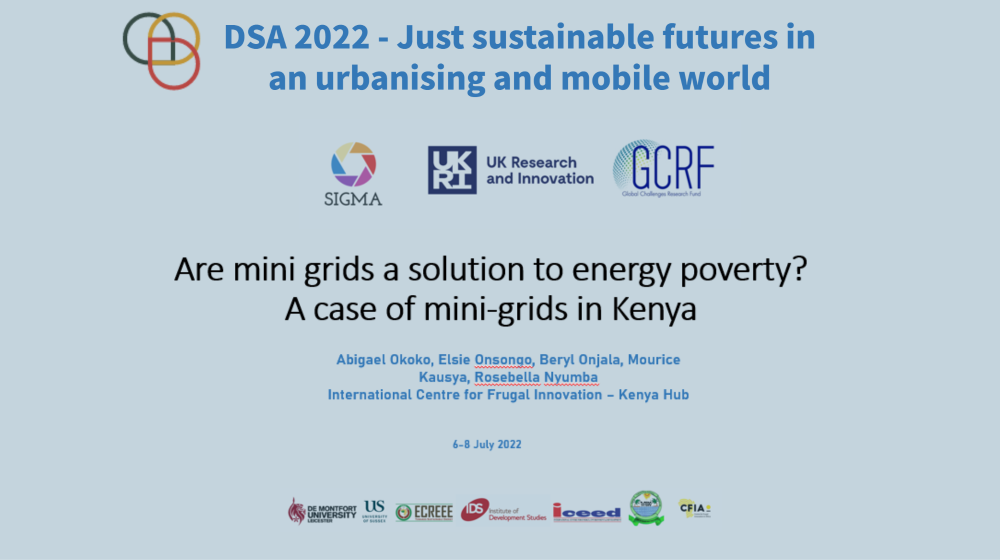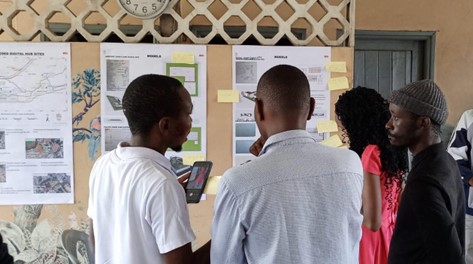Pivotal Event
The Africa International Conference on Clean Energy and Energy Storage (AICCEES) 2024, held at the Institute of Petroleum and Energy Studies at the University of Port Harcourt, Nigeria, on September 26th and 27th, was a pivotal event in the continent’s clean energy conversation. The conference gathered researchers, and industry experts to explore solutions for a cleaner and more sustainable energy future for Africa. As a participant, sponsored through the Transforming Energy Access Learning Partnership (TEA-LP), I presented a paper on the “Mini-Grid Sustainability Framework and Its Application to Selected Mini-Grids in Kenya.” The paper outlines insights into rural energy access, highlighting the dynamic challenges and opportunities within the mini-grid sector. The paper was especially important because more than 600 million people in Sub-Saharan Africa still lack access to electricity, and mini grids have the potential to help bridge this gap.
As the global energy transition gains momentum, Africa faces significant challenges, including the high cost of renewable technologies, limited local technical expertise, and fragmented policies. These barriers have slowed progress toward achieving Sustainable Development Goal 7 (SDG 7), which aims to provide affordable and clean energy for all by 2030.
One recurring theme throughout the conference was the significant gap between academic research and its application in real-world industry settings. The conference emphasized that Africa’s energy future depends on deep, sustained collaboration between academia and industry. These partnerships are essential for moving research beyond theoretical discussions and developing tangible solutions to address Africa’s unique energy challenges, particularly in the areas of access, affordability, and sustainability.
One recurring theme throughout the conference was the significant gap between academic research and its application in real-world industry settings.
Mourice Kausya
One session that particularly resonated with me focused on accelerating the adoption of electric cooking in Africa, led by experts like Dr. Veronica Akpasoh, Dr. Rihab Khalid, Abubakar Swarray, and Dr. Helen Osiolo. As a key member of the team that developed the Kenya National eCooking Strategy (KNeCS), I found the discussion deeply relevant. The discussion emphasized both the technological advancements and policy interventions needed to make electric cooking a viable solution across the continent. The session highlighted the importance of integrating electric cooking into energy planning to create a more inclusive, affordable, and sustainable energy system.
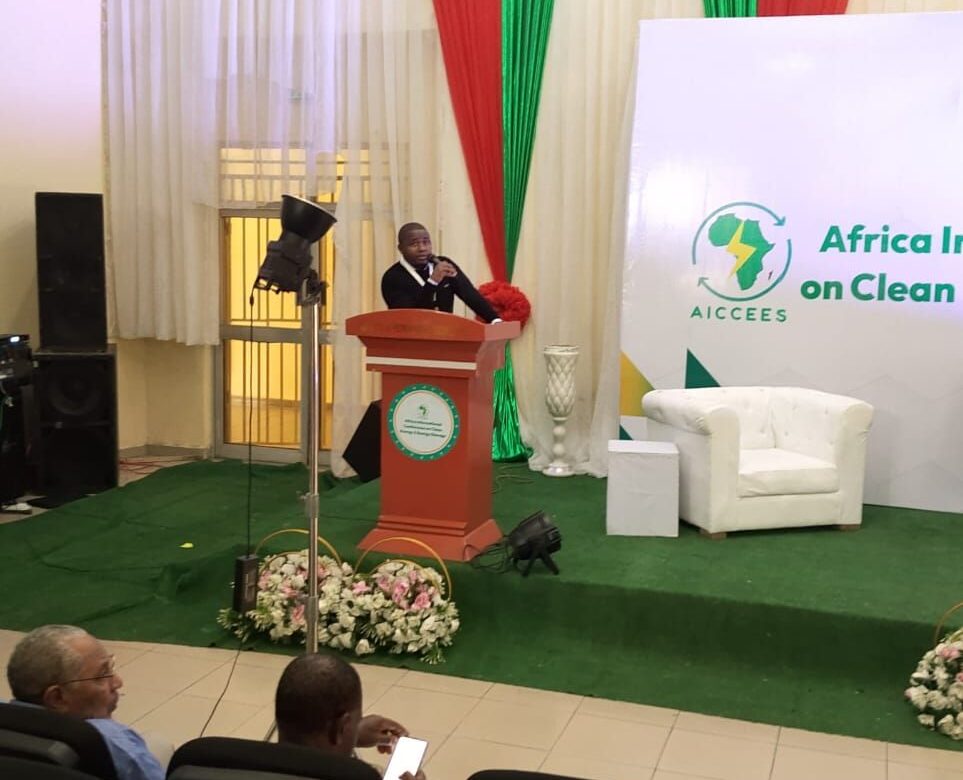
Geothermal Energy Potential
Another fascinating presentation explored the potential of geothermal energy for community applications. In Kenya, geothermal resources have traditionally been used for large-scale electricity generation. However, the conference highlighted its potential for local uses, such as agricultural activities. Discussions on its application in egg incubation and the possibility of greenhouse farming provided new perspectives on how geothermal energy could support off-grid rural communities, shifting the narrative from purely large-scale industrial use to community-focused development.
The conference also prompted reflections on Africa’s clean energy transition. Although Africa contributes only 3.8% to global greenhouse gas emissions, international pressure to transition rapidly to clean energy is growing. While this shift is necessary, it must be balanced with Africa’s economic realities. Unlike many developed nations, Africa’s energy journey is deeply intertwined with broader economic development goals. The pace of the transition must be aligned with these needs to ensure that economic development is not compromised.
Insights Gained
The choice of Port Harcourt, located in the Niger Delta, one of Africa’s major oil-producing regions, as the conference venue was symbolic. It underscored the tension between leveraging Africa’s natural resources and pursuing clean energy goals. In reflecting on Africa’s energy transition, I believe that it must be both green and just, ensuring that economic development is not sacrificed for decarbonization. Key topics such as climate finance and carbon markets demand greater accountability from major polluters. Developed nations, which have historically benefited from industrialization, must contribute fairly to the Global South’s transition and end the practice of greenwashing. This requires reassessing financial commitments to developing countries, especially as the impacts of climate change become more severe. For Africa’s clean energy transition to succeed, climate finance must be driven by genuine commitment from developed nations, reflecting the actual needs of developing countries rather than political motivations.
On the technical front, the insights gained on hydrogen development, clean mobility, and energy storage are particularly timely. These emerging technologies offer Africa the potential to leapfrog traditional energy solutions and adopt cutting-edge innovations. As I return to my work, these discussions will directly inform my work in electric cooking and my growing interest in clean mobility.
The networking opportunities at AICCEES 2024 were equally valuable. Engaging with researchers and industry professionals opened new possibilities for collaboration. As the clean energy sector evolves, I am excited to explore the collaborations sparked during the conference. Whether in hydrogen development or decentralized energy solutions, the potential for cross-border partnerships is immense, and I look forward to playing a role in driving meaningful change across the continent.
As Africa’s energy landscape continues to evolve, I encourage others in the sector to stay engaged, keep the dialogue going, and work together toward a future where clean, reliable energy is accessible to all. Future editions of AICCEES could benefit from being hosted in different regions of Africa, allowing for a broader range of perspectives on the continent’s diverse energy challenges.
Story by: Mourice Kausya
Related News
Physical Address
No. MK088, Ushindi West Avenue,
Mukuyu Rd (Mukuyu West Wing), Thome 1
Nairobi, Kenya
Organization
Subscribe for newsletter & get news, events and publications updates
Contact Us
Office Tel: (+254) 20 8009928 |
Mobile: (+254) 706 324 467
© 2025 Nuvoni Research

